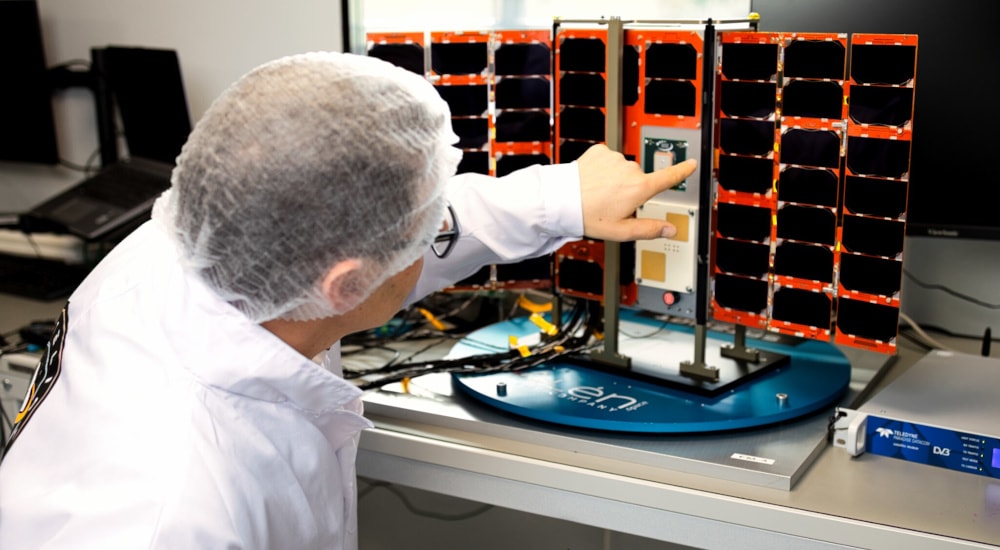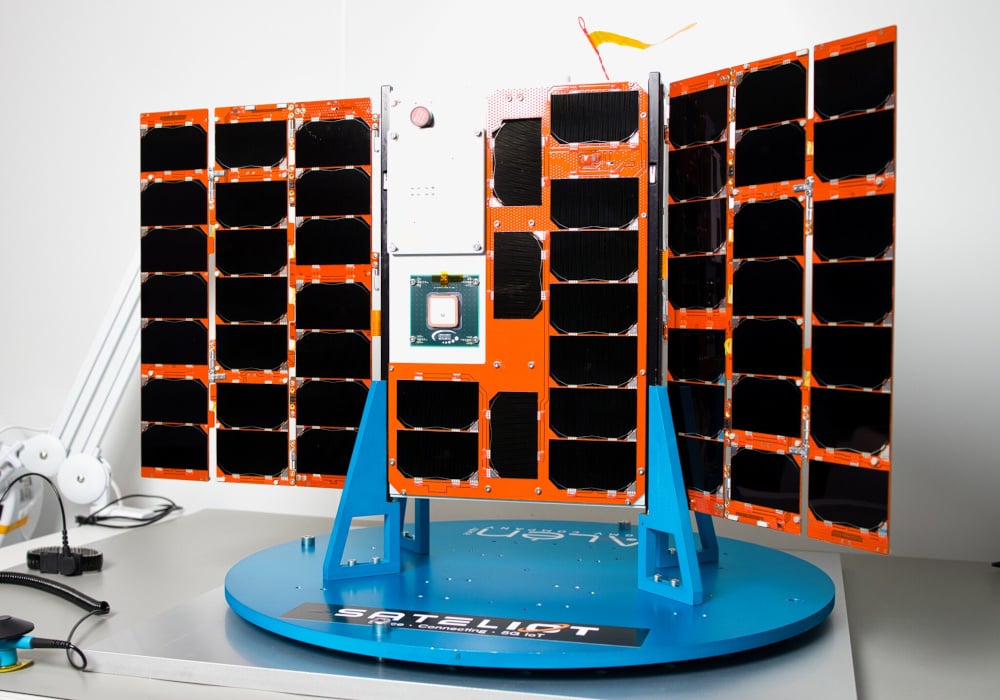Alén Space designs and manufactures four satellites for Sateliot’s 5G constellation
March 27, 2024

The countdown for the launch of the four satellites that Alén Space has manufactured for Sateliot’s 5G constellation has already begun. The deployment into orbit is scheduled for this summer and will be carried out aboard a SpaceX rocket from the Vandenberg Space Force Base, located in California (United States).
The Alén Space team is finalizing the setup of these four state-of-the-art nanosatellites at its facilities in Nigrán (Spain), which will be part of the first phase of what will be the first commercial Low Earth Orbit (LEO) satellite constellation based on 5G technology for the Internet of Things (IoT).
“We are proud to be part of this mission and to contribute our grain of sand so that Sateliot can change satellite communications with this pioneering project,” highlights Alén Space CEO Guillermo Lamelas, who is satisfied with the close collaborative work carried out between Alén Space and Sateliot, the driver of this mission.
A milestone for our team
This project represents a milestone for Alén Space. The company has executed the design and manufacturing of four satellites, reflecting the technical and productive capabilities of its team, which has managed to solve the technological challenges posed by Sateliot.
These CubeSat 6U nanosatellites, measuring 20x10x35 cm and weighing 10 kilograms, are designed to have a five-year lifespan and to operate in a Sun-synchronous Orbit (SSO) at an altitude of between 500 and 600 kilometres.
The goal of this Sateliot project is to provide global and continuous connectivity to all the elements that will make up the IoT universe under the 5G protocol. Among them, telecommunications companies, as it provides the necessary infrastructure to extend their coverage where terrestrial networks do not reach.

Technical challenges of the mission
To achieve this goal, the constellation’s payloads incorporate innovative technology based on a new 5G standard, patented by Sateliot and validated by the European Space Agency (ESA) and the 3GPP, the organisation that brings together the main players in the telecommunications sector.
One of the technical challenges of this mission and any project with small satellites is thermal management, with temperatures ranging from -60 to 60ºC in hour-and-a-half cycles. “The satellites heat up and cool down very quickly, which implies thermal stress, expansion, and contraction of the materials,” says Alberto González, CTO at Alén Space.
Another challenge of this type of mission is the charging of the integrated onboard batteries, designed not to drop below 20% during shadow periods, when the satellite does not directly receive sunlight.
The launch of these four CubeSats will form the first phase of an ambitious Sateliot project, which plans to have 108 satellites in orbit within four years.
Image source: Sateliot
